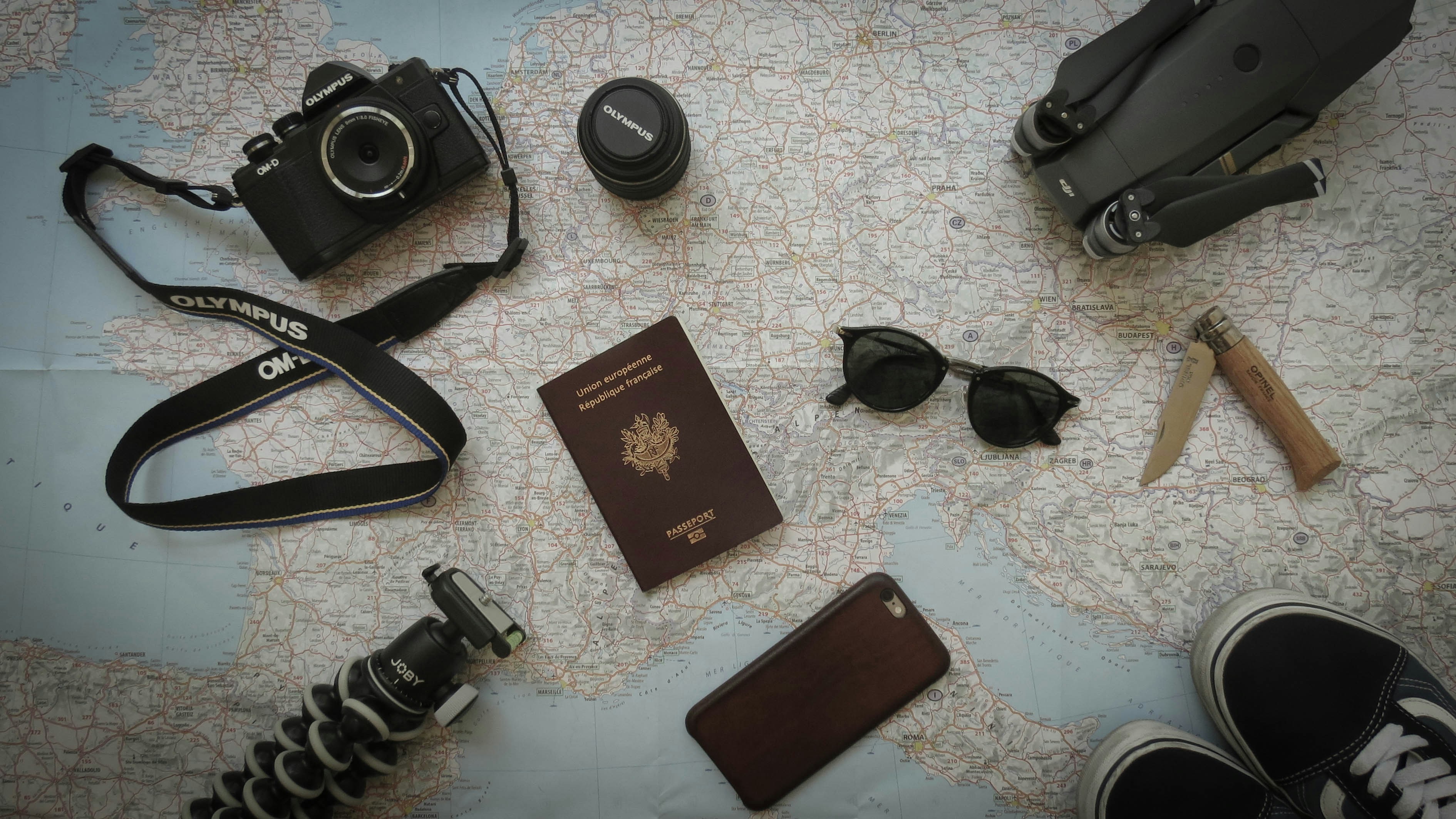Introduction: Current State of Affairs in Russia
The geopolitical landscape of Russia has undergone significant changes in recent years, which has raised considerable concern among international travelers considering a visit to the country. Currently, various factors are influencing the safety and security of travel in Russia. Firstly, tensions related to military actions and international relations are palpable, impacting the perceptions of travelers regarding safety. Such tensions often lead to heightened security measures and possible travel advisories by various governments.

Additionally, the internal political situation in Russia is complex. Demonstrations and protests, arising from political discontent, have been reported in several areas. Foreign visitors should be particularly cautious in regions where organized gatherings are taking place as they may inadvertently find themselves in volatile situations. The authorities’ responses to such events can also be unpredictable, which further complicates the safety of travel in these regions.
Another crucial aspect to consider is public health concerns that may affect tourists. The ongoing presence of health risks, which may stem from various outbreaks or local healthcare quality issues, warrants attention. Potential travelers must stay informed about vaccination requirements and health guidelines from reputable sources before planning their trips to Russia.
Overall, the current state of affairs in Russia presents a multifaceted challenge for international travel. Travelers are encouraged to remain updated with reliable information, including government travel advisories and local news, to assess the evolving situation effectively. Understanding these dynamics will facilitate more informed decisions for anyone contemplating travel to Russia amidst its complex socio-political environment.
Recent Travel Advisories from Governments
As the geopolitical landscape continues to evolve, many governments have issued travel advisories concerning travel to Russia. Notably, the guidance varies significantly between countries, reflecting differing assessments of risk associated with visiting Russia. For instance, the United States Department of State has repeatedly emphasized the potential dangers posed by political tensions, particularly advising U.S. citizens against traveling to specific regions, such as areas near the Ukraine border. This advisory indicates heightened security concerns that are pertinent for any traveler considering a visit to Russia.
Similarly, the United Kingdom Foreign, Commonwealth & Development Office has advised against all travel to certain areas in Russia, particularly in light of the ongoing conflict and heightened military activity. These advisories often stem from considerations related to personal safety, the possibility of detention, and restrictive measures that might affect travelers. It’s important for travelers from the UK to stay informed about such developments as they plan their journey.
On the other hand, countries such as China and some European nations have portrayed a more normalized stance on travel to Russia, typically encouraging travel while informing citizens about potential risks. These advisories usually stress the importance of staying aware of local conditions and adhering to law enforcement guidance during their travels. Consequently, travelers from nations with less stringent warnings may perceive Russia as a viable destination.
Furthermore, international organizations such as the World Health Organization (WHO) have also highlighted public health considerations as part of their advisories. Potential travelers are urged to understand varying conditions that may affect their health and travel experience within Russia. It is crucial for international travelers to thoroughly research and understand the nuances of their respective government advisories when determining the safety of traveling to Russia at this time.
Political Climate and Its Impact on Tourists
The political climate in Russia has undergone significant changes in recent years, creating a complex environment for tourists. Tensions stemming from international relations and domestic policies can influence the safety and experience of travelers within the country. Current geopolitical tensions, particularly related to conflicts in Eastern Europe and Russia’s foreign policy decisions, are critical factors that may affect how tourists are treated. These events can foster a sense of mistrust or hostility toward foreign visitors in certain regions.
Moreover, the domestic political landscape often shapes public sentiment towards tourists. A rise in nationalistic sentiments may lead some locals to view foreigners as unwelcome. However, many Russians are accustomed to tourists and appreciate the cultural and economic benefits they bring. This dichotomy can impact the overall travel experience, as safety and friendliness may vary from one area to another.
Recent changes in visa policies and travel restrictions also highlight how politics can directly affect tourism. While some regions are actively promoting tourism as part of economic recovery efforts, others may impose stringent measures that could deter visitors. Tourists need to stay informed about travel advisories and local regulations, as these can change rapidly in response to the political climate.
In this context, it is essential for potential travelers to consider staying updated on current events in Russia and to actively seek information from reliable sources. Engaging with local guides and respecting cultural norms while traveling can enhance safety and create a more positive experience. Ultimately, while there are challenges presented by the current political climate, many travelers still find enjoyment and enrichment in exploring Russia’s diverse landscapes and culture.

Health and Safety Considerations
As international travel resumes, it is essential for travelers to be aware of current health and safety conditions in Russia. The ongoing implications of the COVID-19 pandemic have necessitated various protocols to ensure public safety. As of now, travelers to Russia are encouraged to be fully vaccinated against COVID-19, with many establishments requiring proof of vaccination for entry. Accepted vaccines typically include those recognized by the World Health Organization (WHO). Moreover, it is advisable to consult government advisories or local embassy resources for the most current travel information prior to departure.
Healthcare accessibility in Russia can vary greatly between urban and rural areas. Major cities such as Moscow and St. Petersburg have well-equipped hospitals and clinics, but travelers should also familiarize themselves with the availability of healthcare facilities in less populated regions. It is recommended to obtain international health insurance that covers medical expenses, including emergency evacuation if necessary. This ensures that travelers can receive appropriate care in case of illness or injury during their stay.
In addition to vaccination, adhering to health regulations is crucial for maintaining personal safety. Travelers should practice good hygiene, including frequent handwashing and the use of masks in crowded places, to reduce the risk of transmission of various diseases, including the flu and other respiratory infections. Furthermore, staying informed about any local health advisories or restrictions is important, as regulations can change rapidly based on the public health situation.
Overall, ensuring health and safety while traveling in Russia requires awareness of vaccination requirements, understanding healthcare accessibility, and adherence to local health protocols. By taking these precautionary measures, travelers can protect their well-being and enjoy their trip to this unique country.
Cultural Sensitivity and Local Laws
Cultural sensitivity is paramount when traveling to Russia, a nation rich in history, customs, and traditions that vary significantly across its vast regions. Understanding and respecting local customs can greatly enhance your travel experience. For instance, greeting individuals with a firm handshake and maintaining eye contact is considered polite. In contrast, actions such as resting your feet on furniture or giving an extravagant gift without a proper relationship context may be perceived as disrespectful. Hence, it is advisable for tourists to familiarize themselves with these cultural norms before embarking on their journey.
Additionally, awareness of local laws is critical, as legal regulations can differ considerably from those in one’s home country. For example, photography in certain areas, such as military installations or governmental buildings, may be strictly prohibited. Engaging in public demonstrations or protests can also lead to legal repercussions. Tourists should carry identification at all times, as local authorities have the right to request it. Furthermore, recent legal adjustments regarding internet usage and social media should be noted, as some online platforms are restricted within the country.
Travelers must also be cautious about their discussions on sensitive topics, including politics, religion, and historical events, as such conversations can sometimes lead to misunderstanding or embarrassment. It is prudent to approach these subjects with great care or to avoid them altogether. In navigating these cultural waters, showing respect for Russian traditions and abiding by local regulations not only fosters a positive interaction with locals but also ensures a safer, more enjoyable visit to this fascinating country.

Travel Logistics and Preparedness
When planning a trip to Russia, understanding the logistics of travel is paramount to ensure a smooth experience. Tourists should first consider their transportation options upon arrival. Major international airports, such as Sheremetyevo International Airport in Moscow and Pulkovo Airport in St. Petersburg, serve as gateways to the country and offer a range of flight connections. Once in Russia, the most convenient forms of transportation include the extensive metro systems, buses, and taxis. It is advisable to download local transportation apps to facilitate easier navigation and payment. Furthermore, trains are an efficient option for intercity travel, with the Trans-Siberian Railway being a popular choice for those seeking adventure.
Accommodation is another critical aspect of trip logistics. Visitors to Russia can choose from a variety of lodging options, including hotels, hostels, and short-term rental apartments. It is recommended to book accommodations well in advance to secure the best deals and ensure availability, particularly during peak tourist seasons. Utilizing reputable booking platforms not only simplifies the process but also provides travelers with reviews and ratings, assisting in making informed decisions.
Additionally, purchasing local travel insurance is an essential step to safeguard against unforeseen circumstances. Unexpected medical expenses or travel disruptions can occur, and having adequate coverage can mitigate these risks. Travelers should research different providers and compare policies to find one that suits their needs, considering factors such as coverage for medical emergencies, trip cancellations, and lost belongings.
Preparation is crucial when engaging in international travel, especially to a country with varying regulations and a distinct cultural landscape. Anticipating changes in travel environments, staying informed about local laws, and maintaining a flexible itinerary can significantly enhance the overall travel experience in Russia.
Personal Safety Tips for Tourists
Traveling to Russia can be an enriching experience, but it is essential to prioritize personal safety during your journey. Foremost, maintaining situational awareness is crucial. Always stay vigilant of your surroundings, especially in crowded places or when using public transportation. Being aware of local customs and behaviors can enhance your safety. Engaging in casual conversations with locals can provide valuable insights, but always be cautious of discussing sensitive topics such as politics or religion.
Another practical tip is to avoid risky areas known for higher crime rates. Research and identify neighborhoods that are safer for tourists and stick to well-lit paths, especially at night. It is advisable to check recent travel advisories issued by your government prior to visiting and to stay informed about any developments during your trip. Trust your instincts; if a situation feels uncomfortable or dangerous, seek to remove yourself from it.
In case of emergencies, it is vital to have local emergency contact numbers readily available. In Russia, dial 112 or 911 for emergency services, including police, fire, and ambulance. Additionally, keep a copy of your travel insurance details and the contact information of your country’s embassy or consulate easily accessible. This can prove invaluable in the event of lost passports or other travel disruptions.
Conflicts can arise in any unfamiliar environment. If confronted, remain calm and composed, avoid escalating the situation, and prioritize de-escalation techniques such as maintaining an open demeanor and speaking softly. Should you find yourself in a hostile interaction, seek assistance from local authorities or fellow tourists. By incorporating these safety tips into your travel plans, you can foster a secure and enjoyable experience while exploring the vast cultural landscape of Russia.
Experiencing Russia Safely: Recommended Destinations
For those contemplating a visit to Russia, selecting the right destinations can greatly affect the overall experience and safety of travelers. Despite the current geopolitical tensions, several regions in Russia remain safe and welcoming to tourists. Such areas not only provide enriching cultural experiences but also ensure a level of security that mitigates potential risks.
Moscow, the capital city, is an essential stop for travelers. Known for its iconic landmarks such as the Kremlin and Red Square, Moscow also offers a variety of museums, galleries, and theaters that showcase the nation’s rich history and vibrant culture. With a robust security presence and a multitude of amenities for tourists, the city remains a secure destination for those eager to explore its urban charm.
St. Petersburg is another standout destination, renowned for its stunning architecture and historical significance. Visitors can marvel at the Hermitage Museum, one of the world’s largest art museums, and enjoy leisurely strolls along the Neva River, which features picturesque views of the city. The local authorities have made concerted efforts to maintain safety, making St. Petersburg an inviting option for both cultural immersion and secure travel.
For nature enthusiasts, exploring the vast landscapes of Siberia, particularly in areas like Lake Baikal, can provide a refreshing contrast to the urban experiences. This natural marvel, recognized as the deepest freshwater lake in the world, offers opportunities for hiking, wildlife spotting, and immersing oneself in breathtaking surroundings. The remote nature of this region contributes to its safety for tourists who seek adventures away from busy urban centers.
In summary, while considering travel to Russia, opting for well-known destinations such as Moscow, St. Petersburg, and the natural splendor of Siberia can ensure a blend of enriching experiences and safety. By selecting these locales, travelers can navigate their journey through Russia with confidence, fully engaging in its diverse offerings while maintaining necessary precautions.
Conclusion: Weighing the Risks and Rewards
As we conclude our examination of the safety of traveling to Russia at this juncture, it becomes imperative to synthesize the various factors discussed throughout this blog post. Travel to Russia undoubtedly presents a conundrum of risks and rewards that must be carefully navigated by prospective visitors. Current geopolitical tensions, economic sanctions, and the implications of ongoing conflicts may contribute to an environment that raises legitimate safety concerns for travelers. It is crucial to remain vigilant about these factors when considering a trip to this vast and culturally rich nation.
However, it is equally important to recognize that traveling to Russia can offer rewarding experiences that extend beyond the challenges one may encounter. The country boasts a profound historical legacy, vibrant culture, world-class architecture, and unique regional diversities worthy of exploration. For those who approach their journey with thorough research, situational awareness, and a focus on safety, the rewards of visiting Russia can be substantial. Engaging with local traditions, experiencing diverse cuisines, and visiting renowned landmarks are facets of travel that may enrich one’s worldview and contribute to personal growth.
Ultimately, the decision to travel to Russia at this time should be made with careful consideration of both the risks and the potential for memorable experiences. Keeping informed about travel advisories, local customs, and the general political climate can aid in making educated decisions. Prospective travelers are encouraged to stay updated with reliable information sources and consider enlisting the assistance of experienced travel professionals. In doing so, individuals can enhance their travel experience while prioritizing their safety and well-being.



